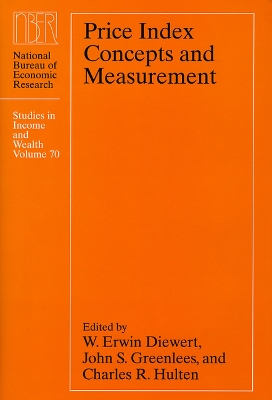National Bureau of Economic Research Studies in Income and Wealth
2 total works
Measuring Wealth and Financial Intermediation and Their Links to the Real Economy
by Charles R Hulten
Published 1 January 2015
More than half a decade has passed since the bursting of the housing bubble and the collapse of Lehman Brothers. In retrospect, what is surprising is that these events and their consequences came as such a surprise. What was it that prevented most of the world from recognizing the impending crisis and, looking ahead, what needs to be done to prevent something similar? Measuring Wealth and Financial Intermediation and Their Links to the Real Economy identifies measurement problems associated with the financial crisis and improvements in measurement that may prevent future crises, taking account of the dynamism of the financial marketplace, in which measures that once worked well have become misleading. In addition to outlining advances in measuring financial activity, the contributors also investigate the effects of the crisis on households and nonfinancial businesses. They show that households' experiences varied greatly, and some even experienced gains in wealth, while nonfinancial businesses' lack of access to credit in the recession may have been a more important factor than the effects of policies stimulating demand.
Price Index Concepts and Measurement
by Walter E Diewert, John Greenlees, and Charles R Hulten
Published 1 February 2010
Although inflation is much feared for its negative effects on the economy, how to measure it is a matter of considerable debate that has important implications for interest rates, monetary supply, and investment and spending decisions. Underlying many of these issues is the concept of the Cost-of-Living Index (COLI) and its controversial role as the methodological foundation for the Consumer Price Index. "Price Index Concepts and Measurements" brings together leading experts to address the many questions involved in conceptualizing and measuring inflation. They evaluate the accuracy of COLI, a Cost-of-Goods Index, and a variety of other methodological frameworks as the bases for consumer price construction.

